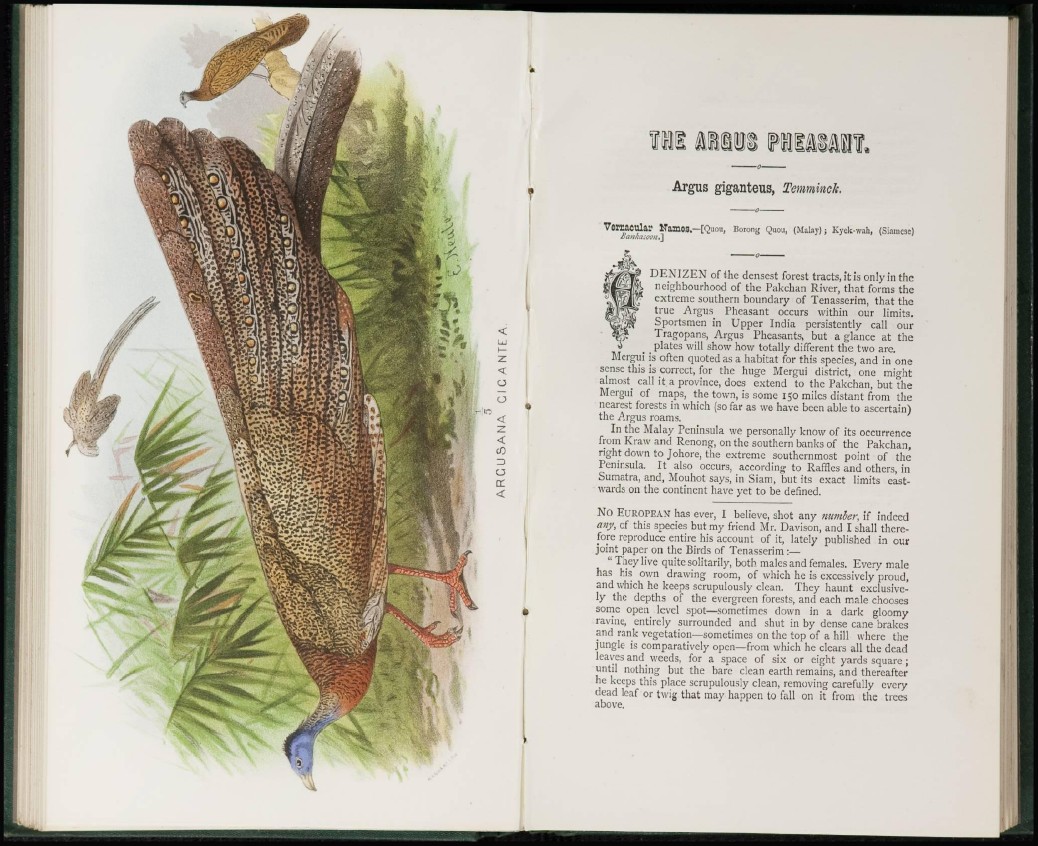
Argus giganteus, TemmincL
Vernacular Names.—[Quou, Eorong Quou, (Malay); Kyek-wah, (Siamese)
ft —•
D E N I Z E N of the densest forest tracts, it is only in the
neighbourhood of the Pakchan River, that forms t he
extreme southern boundary of Tenasserim, that t he
true Argus Pheasant occurs within our limits.
Sportsmen in Upper India persistently call our
Tragopans, Argus Pheasants, but a glance at t he
plates will show how totally different the two are.
Mergui is often quoted as a habitat for this species, and in one
sense this is correct, for the huge Mergui district, one might
almost call it a province, docs extend to the Pakchan, but t he
Mergui of maps, the town, is some 150 miles distant from the
nearest forests in which (so far as we have been able to ascertain)
the Argus roams.
In the Malay Peninsula we personally know of its occurrence
from Kraw and Renong, on the southern banks of the Pakchan,
right down to Johore, the extreme southernmost point of the
Peninsula. It also occurs, according to Raffles and others, in
Sumatra, and, Mouhot says, in Siam, but its exact limits eastwards
on t he continent have yet to be defined.
No E U R O P E A N has ever, I believe, shot any number, if indeed
any, of this species but my friend Mr. Davison, and I shall therefore
reproduce entire his account of it, lately published in our
joint paper on t he Birds of Tenasserim :—
"They live quite solitarily, both males and females. Every male
has his own drawing room, of which he is excessively proud,
and which he keeps scrupulously clean. They haunt exclusively
the depths of the evergreen forests, and each male chooses
some open level spot—sometimes down in a dark gloomy
ravine, entirely surrounded and shut in by dense cane brakes
and rank vegetation—sometimes on t h e t op of a hill where the
jungle is comparatively open—from which he clears all the dead
leaves and weeds, for a space of six or eight yards square ;
until nothing but the bare clean earth remains, and thereafter
he keeps this place scrupulously clean, removing carefully every
dead leaf or twig that may happen to fall on it from the trees
above.